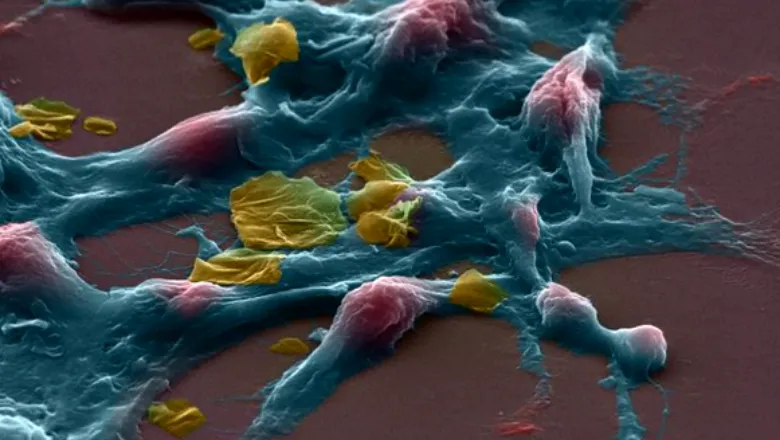Collectively there is a wealth of expertise on brain drug delivery, cancer immunology and clinical translation within our research team and collaborators within the institution and externally. The awarding panel clearly appreciated that the project is highly significant and innovative, and the success of the study will bring a new paradigm in brain tumour treatment.
Professor Khuloud Al-Jamal, School of Cancer & Pharmaceutical Sciences
20 November 2020
Researchers win grant allowing cross-school collaboration to examine if immunogenic cell death can be exploited in brain cancer
New project aims to develop a new treatment option for brain cancer.

Brain cancer remains one of the hardest diseases to treat in the history of oncology with a median patient survival of 12-15 months after diagnosis. The current treatments including surgical resection followed by radio/chemotherapy prolong survival, however a cure has not yet been found.
This project aims to develop a new treatment option for brain cancer by using a class of chemotherapeutic drugs known for their ability to trigger a specific mechanism of cell death, referred to as immunogenic cell death (ICD). Further, in combination with ICD, researchers working on this project aim to use gene silencing approaches to reduce the presence of a ‘don’t eat me’ CD47 protein receptor which cancer cells use to escape clearance by immune cells.
This 3-year project “Can immunogenic cell death be exploited in brain cancer?”, funded by Brain Research UK, is a cross-School collaboration between Professor Khuloud Al-Jamal, Dr Julie Wang, Dr Adam Walters and Dr James Arnold as co-investigators. The awarding panel noted the strength of the multi-disciplinary team.
The research proposal builds on the team’s recent efforts to identify novel targets in glioblastoma and cancer stem cells and develop new approaches for in situ cancer vaccination funded by Wellcome Trust, Brain Tumour Charity, and British Council. Professor Al-Jamal is a steering committee member of the Children Brain Tumour Drug Delivery Consortium.
This project aims to develop a new combinatory treatment approach for brain tumours exploiting the therapeutic synergy between immunogenic cell death (ICD) and blockade of immune checkpoint regulator CD47. In this proposal, we would like to investigate whether ICD immunochemotherapy involving concurrent alleviation of immunosuppression can provide more effective and long-term therapeutic outcomes for brain cancer.
Professor Khuloud Al-Jamal, School of Cancer & Pharmaceutical Sciences
The proposed ‘ICD immunochemotherapy’ will be assessed in cell lines, animals, as well as clinical patients’ samples provided by Professor Keyoumars Ashkan, the lead for neuro-oncology and the neuroscience commercial clinical trial unit at King's College Hospital.
Image: Scanning electron micrograph of brain cancer stem cells exposed to a carbon-type nanocarriers (cancer stem cell body (blue), nucleus (pink), nanocarriers (yellow).
Production: Al-Jamal and Pollard labs.





